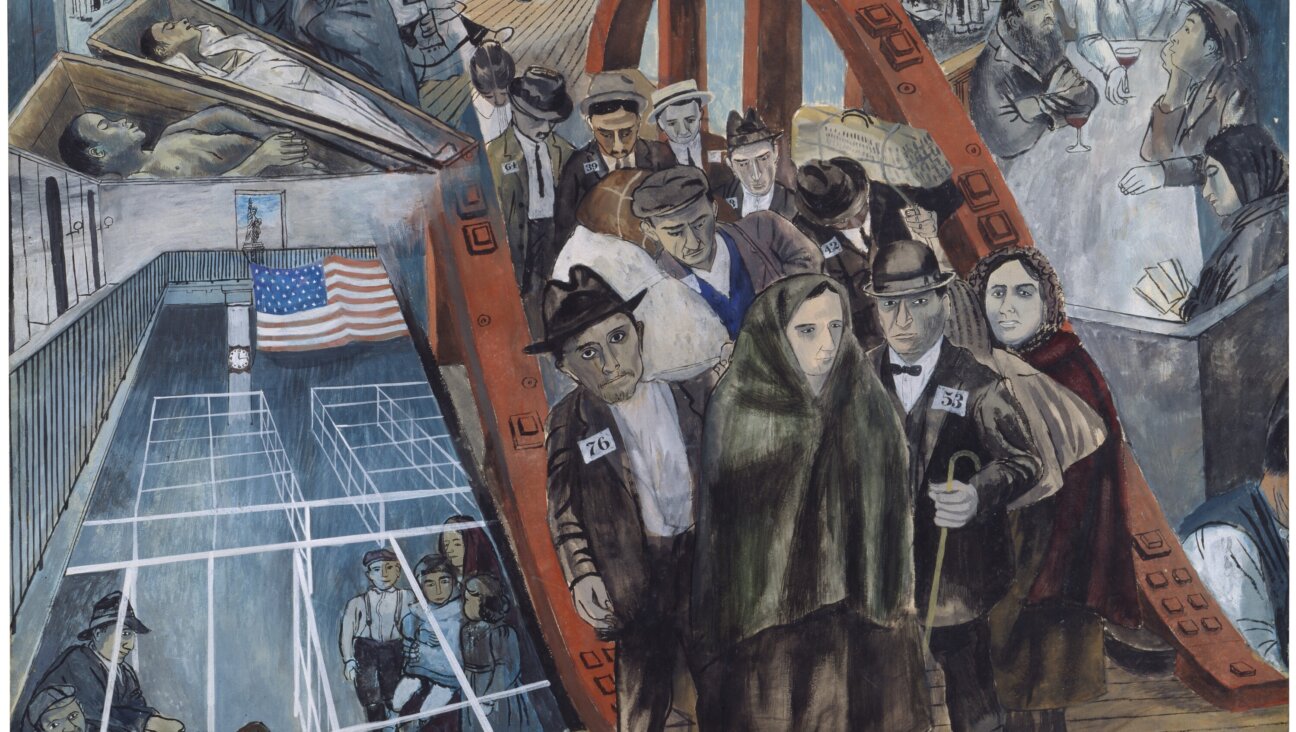As Sacklers Settle Opioid Lawsuit, Museums Cut Philanthropic Ties

The prescription opioid painkiller OxyContin is displayed at a drugstore. Image by Getty Images
Last week, in a sea change for the world of art philanthropy, three major museums decided to reject donations from the Sackler family.
The museums, which announced their decisions over the course of three days, are the London-based National Portrait Gallery and Tate galleries and the Solomon R. Guggenheim Museum in New York. Yesterday, the Sackler Trust, a British charity established by the family, announced it would stall new donations, citing ongoing legal cases in the United States.
“I remain fully committed to all the causes the Sackler Trust supports,” Theresa Sackler, chairwoman of the Trust, said in a statement, “but at this moment it is the better course for the trust to halt all new giving until we can be confident that it will not be a distraction for institutions that are applying for grants.” The New York Times reported that the Raymond And Beverly Sackler Foundation, also based in the United Kingdom, similarly stated plans to suspend donations on Monday.
The Sacklers, the principal owners of OxyContin manufacturer Purdue Pharma, are currently the subject of lawsuits and protests from artists and activists for their alleged role in the opioid epidemic. The family’s philanthropy in the arts dates back decades; donations made by its members include the Metropolitan Museum of Art’s Sackler Wing and Harvard University’s Arthur M. Sackler Museum. Sackler family members involved in Purdue have been accused of using their generosity to mask charges of profiting off of a crisis that kills tens of thousands annually.
The Tate galleries in London announced their decision March 21, a day after another London museum, the National Portrait Gallery, decided with the Sackler family’s agreement to not accept a £1 million gift from the Sackler Trust. The Gallery’s decision, determined after a review by their Ethics Committee, marked the first time a major art institution turned down a donation from the family due to the controversy surrounding them. Unlike the Tate and Guggenheim, they did not announce whether they would accept gifts from the Sacklers in the future.
In an email to the Forward, a representative for the Tate confirmed the museum’s own Ethics Committee had discussed their donor policy with regard to the Sacklers and made recommendations to the Board of Trustees.
“The Sackler family has given generously to Tate in the past, as they have to a large number of UK arts institutions,” the Tate said in a statement. “We do not intend to remove references to this historic philanthropy. However, in the present circumstances we do not think it right to seek or accept further donations from the Sacklers.”
Last Friday, a day after the Tate’s announcement, the Guggenheim Museum issued its own statement.
“The Solomon R. Guggenheim Museum received a total of $7 million in gifts from members of the Mortimer D. Sackler family initiated in 1995 and paid out through 2006 to establish and support the Sackler Center for Arts Education, which serves approximately 300,000 youth, adults, and families each year,” the Guggenheim said. “An additional $2 million was received between 1999 and 2015 to support the museum. No contributions from the Sackler family have been received since 2015. No additional gifts are planned, and the Guggenheim does not plan to accept any gifts.”
When contacted by the Forward, representatives for the Guggenheim said they had nothing more to add.
The Sacklers did not receive advanced notice of the Guggenheim’s decision, The Times reported.
In a statement to The Times, a spokeswoman for Mortimer D. Sackler, a former board member of Purdue Pharma, defended his record on the Guggenheim Board of Trustees. She said he stepped down from that role last year because he was “overextended.”
“For more than half a century, several generations of Sacklers have supported respected institutions that play crucial roles in health, research, education, the arts and the humanities and remain committed to doing so,” the statement continued. “Unfortunately, the current climate of litigation has created false impressions that we are working to clear up.”
That litigation includes, among a number of cases, a lawsuit in Oklahoma in which the Sacklers today reached a settlement with Oklahoma Attorney General Mike Hunter for $270 million. The Sackler family were not named in the case, which was brought by the state against their company and other pharmaceutical giants like Johnson and Johnson.
In a statement, Purdue Pharma announced that the settlement, in addition to covering litigation fees and contributing to efforts to alleviate the effects of the opioid crisis in Oklahoma, would provide $102.5 million for the establishment of the National Center for Addiction Studies and Treatment at Oklahoma State University in Tulsa. The statement also said the the Sackler Family has made a personal pledge to contribute $75 million over five years to the National Center at OSU.
The other defendants in the Oklahoma case have not settled; their trial will proceed in May.
“We have profound compassion for those who are affected by addiction,” a spokesperson for the Mortimer and Raymond Sackler families said in the statement. “The National Center will provide immediate assistance to Oklahomans and individuals nationwide who need these services, and our support is in keeping with our family’s continuing commitment to making meaningful contributions to solutions that save lives.”
While the settlement resolves Oklahoma’s claims against Purdue Pharma, the Sacklers’s legal woes aren’t over. On March 18, over 600 American cities, Native American tribes and counties filed a lawsuit against eight members of the family. The federal case joins ongoing cases brought by the City of New York and the Commonwealth of Massachusetts. Together, these cases allege that family members engaged in deceptive marketing for their signature drug and a campaign to shift the blame for the epidemic onto addicts. The Sacklers continue to deny the allegations.
PJ Grisar is the Forward’s culture intern. He can be reached at [email protected]
























